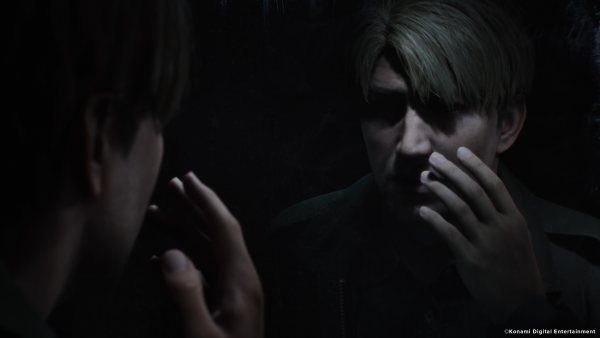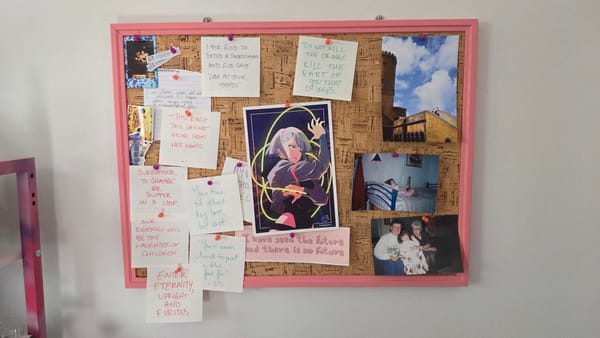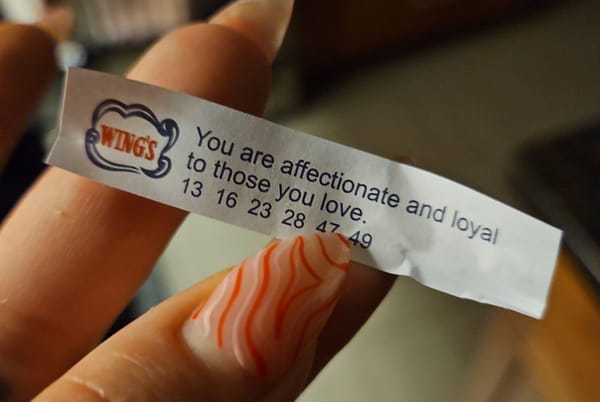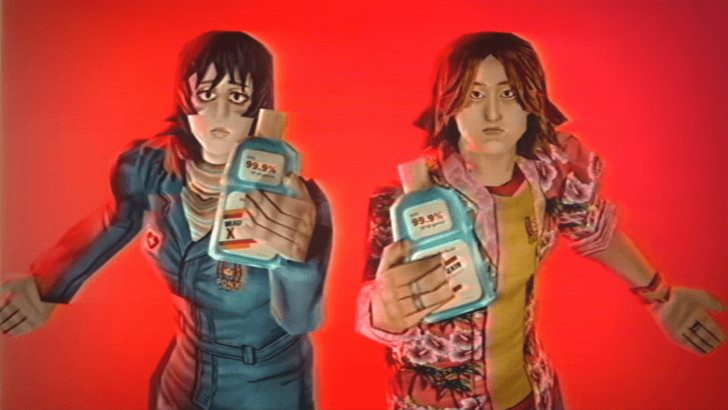Hello, Neighbour
Archived from Apr 27, 2023:
One of the weird things about the pace of the world is that I’ll put a few thoughts in a file to remind myself to write about them at some point, and only days later they feel irrelevant. This is wholly absurd because so many of these stories involve loss of life. It is a blip in the media cycle that feels completely normal now; it happens so much, yet each of these stories has completely altered lives and communities. It is an exhausting pattern that I begrudge no one for not keeping up with. At this point, it feels like we all know it’s happening all the time, so why upset ourselves with the specifics? Unfortunately, the specifics do tell us a lot. I want to talk about the death of the third space, the “good guy with a gun” and hyper individuality, but first, a small anecdote.
During the initial lockdown in 2020, I wound up having an “essential” job, in that I work at a brewery. It was a bit up in the air if we would eventually be told to stop production but we kept chugging along. As production cranked up to keep up with the lines and our staff shrunk from 14 to 4, the low fills I brought home increased and one day I popped a sign in my kitchen window, facing my neighbours across the way and asked if they’d like some beers. Over the course of the next few months as the weather warmed, knocks on the door to sit in a big circle became a regular event. Folks from different units would pull chairs into the park and sit in our small household bubbles as we chatted. Signs went up in windows, beer, dinner and cookies were traded back and forth. When I eventually had to move out of that neighbourhood, it made sense to me that those relationships stayed in the past. They were based around proximity and immediate community, not interests or commonalities per se. In a way, it makes me sad to think I probably never would have spoken to most of those people if lockdowns had never happened. A knock on the door from the unit below surprised me the first time, and eventually came to be a circle I enjoyed joining after shutting down the bottle shop and walking home. It strikes me as a shame how uncommon it felt when so much of my childhood was spent running across the street to play with friends. Proximity formed the foundation of my longest standing friendship, and yet it still feels normal to know none of my neighbours in adulthood.
Sure, some of this comes from work and having established social circles, but it also makes me think of the death of the third place. The third place is a term coined by Ray Oldenburg to express the place where people go to socialize. Home is the first place, work is the second and the third place is where we meet and build community.
"In the absence of informal public life, living becomes more expensive. Where the means and facilities for relaxation and leisure are not publicly shared, they become the objects of private ownership and consumption.
Oldenburg has been an advocate for accessible, safe community spaces for a long time, and while lockdowns exacerbated the death of the third place, they were hardly the beginning. Increasing cost of living, underfunded public spaces and libraries along with increasingly centralized property ownership means that there are fewer and fewer options for people to meet freely and comfortably. Public spaces and public services have been on the decline for years now. I was saying to my friend this week that I’m glad it’s finally spring, because going out in the winter is so expensive since backyards and porches are damp and unwelcoming. And yet, going to the island in Toronto during the summer will cost you to get across the lake.
I’m going to add a content warning for this next part, I’m going to be talking about a slew of recent shootings and gun culture. I understand if you’d prefer to end your reading here this week.
Now, we’re all familiar with the epidemic of mass shootings in the United States, but in the past week there has been a slew of shootings that resulted in injury and death for the crime of…being in a neighbourhood.
Ralph Yarl, a 16 year-old was shot for ringing the wrong doorbell.
Kaylin Gillis, 20, was shot and killed for being in a car that briefly turned into the wrong driveway.
Heather Roth and Payton Washington were shot for mistaking which car was theirs.
It would take the average person one guess to determine where these shootings all took place. This is worse than the death of the third place, it is death in fear of a third place. It is extreme paranoia and impulsive violence due to some presumption of being a perpetual victim, terrified of everyone who may come near. It is this incredibly warped sense of “protecting” oneself without realising that they, indeed, are the threat to their community. It makes me incredibly sad to think of the kind of person who would see a 16 year-old and think to shoot. It breaks my heart that kids can’t be kids without a constant threat of violence, particularly Black kids. It infuriates me to watch the circus that is the US government bend over backwards to explain away the violence. This is the consequences of isolation and hyper individualism tearing their way into communities. This is all the conspiracies, misinformation and Fox News being consumed, put into action. Sure, Tucker is gone from Fox, but I think it naive to imagine his viewers won’t follow him wherever he goes next.
I have no way of knowing exactly what any of these people were thinking and feeling when they attacked strangers, but it is hard to be surprised when the entire culture seems to encourage them. While we certainly share similar media in Canada as the United States, the notable absence of guns alone helps dispel the myth of the “good guy with a gun”. People who think they are protecting themselves, their families or their communities while they carry around weapons basically never stop active shooters, and are far more likely to hurt more people. Even in instances where the police are called, recent data collection shows cops stopped fewer than one third of active shooters. Violence begets violence begets fantasies of being the one to stop it. Chest puffed and self important, even killing to “defend” your home from an imagined threat. And people wonder why kids don’t play outside these days.
I wrote about digital radicalization and community deradicalization during my thesis. It was a heavy and hard year, and what I ultimately learned is that most deradicalization comes from treating one another well and creating community. It is incredibly hard to talk to people who have gone down the rabbit hole, who move goal posts according to whatever suits their world view at the time, but it is terribly important. Some people do come back from the brink, but they are more likely to get closer to the edge the more isolated we are from each other.
To sign off, another thought from Ray Oldenburg:
"The character of a third place is determined most of all by its regular clientele and is marked by a playful mood, which contrasts with people's more serious involvement in other spheres. Though a radically different kind of setting for a home, the third place is remarkably similar to a good home in the psychological comfort and support that it extends...They are the heart of a community's social vitality, the grassroots of democracy, but sadly, they constitute a diminishing aspect of the American social landscape."
Sorry that was such a bummer, y’all. Welcome to my brain basically 24/7. As an apology, please accept this picture of Kafka:
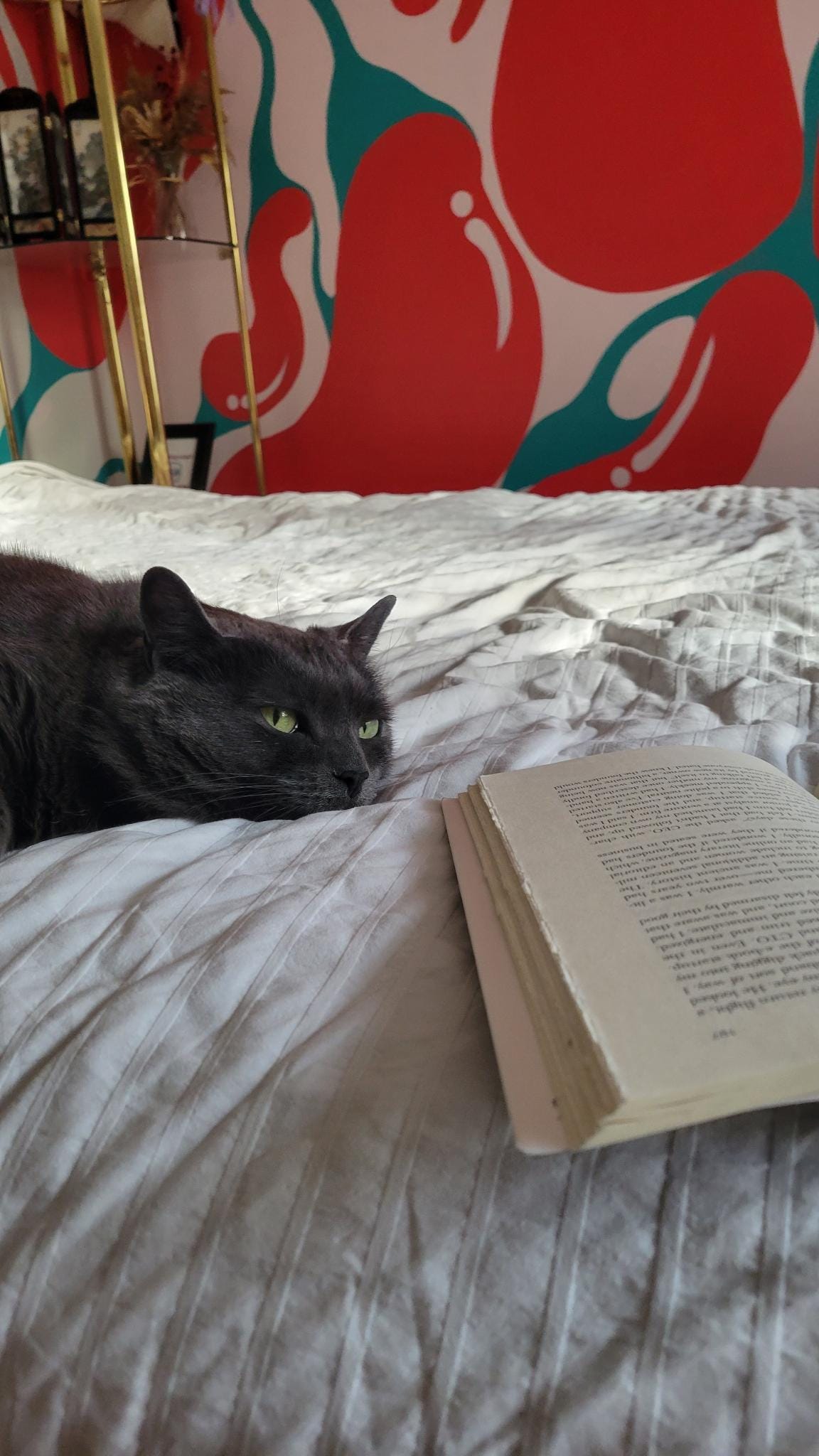
Thank you, as always for being here and if you ever have any thoughts, questions or suggestions, please don’t hesitate to leave a comment!

